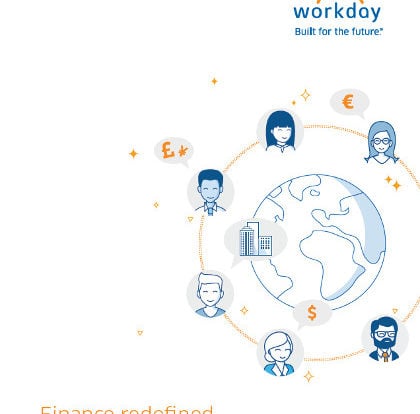UK urged to create ‘Department for the Civil Service’ | US government expands apprenticeships | Milestone public service reform in South Africa

The latest management and workforce developments in government
Hello and welcome to a new Global Government Forum newsletter looking at the latest management and workforce developments in governments around the world.
Governments need to manage their people well to make sure that they can deliver the best possible public services for citizens and customers. The importance of this has increased as governments adjust to the era of flexible and remote work and respond to a growing need to boost public sector productivity.
To keep track of these developments, Global Government Forum is launching a newsletter on the innovations governments are implementing in how they manage their people. This monthly newsletter will highlight the latest in public and civil service management, as well as GGF’s own insight and analysis.
We hope you enjoy this first edition, Keep your eyes peeled for more leading analysis of the work of governments around the world in future GGF newsletters and please share your thoughts and news stories with [email protected]
In this edition:
- UK government urged to create ‘Department for the Civil Service’
- US federal government executive order aims to expand agencies’ use of apprenticeships
- South African National Assembly passes milestone public service reform bills
- Join us at Innovation 2024 skills sessions
UK government urged to create ‘Department for the Civil Service’
The UK government has been urged to create a dedicated Department for the Civil Service to focus on improving leadership and management across Whitehall.
The proposal to create the department – as well as a Department of the Prime Minister and Cabinet – is included in the final report of the Institute for Government’s (IfG) Commission into the Centre of Government.
The report concludes that the centre of government has failed successive prime ministers and needs to be reformed to deliver government priorities.
Cabinet Office ‘should not continue in current form’: The commission, which took evidence for a year from people who have worked at the heart of government in the UK and overseas, said that reform of the centre of government was needed to deliver across a host of urgent challenges – from tackling low economic growth and addressing regional inequalities, to adapting to climate change and transforming public service performance.
The report found that there was a need for reform to the UK centre of government, which currently comprises 10 Downing Street (essentially the prime minister’s office), the Cabinet Office (which both coordinates policy delivery across government and acts as the corporate headquarters for government) and the Treasury, which in addition to being the finance ministry oversees some public service performance measures.
The report by the 17 commissioners, who included IfG director Dr Hannah White as well as former senior civil servants Sir John Kingman and Baroness (Louise) Casey, concluded that No.10 and the Cabinet Office “should not continue in their current form”.
What’s next? Instead, the analysis suggests they should be restructured into a new Department of the Prime Minister and Cabinet and a separate Department for the Civil Service. The report also called for a cabinet post to be created with “responsibility for delivering the government’s priorities and ministerial responsibility for the civil service”. Government should set out these priorities at the start of each parliament, and they should be cascaded into “a new shared strategy, budget and performance management process owned collectively at the centre”.
Who’s next? The commission also recommends a number of civil service management processes with the aim of improving the structures of the centre.
The commission comes to the same conclusion as Lord Francis Maude’s review of the UK civil service that the “roles of cabinet secretary and head of the civil service should be filled by separate individuals”, while the IfG also calls for a new statute for the civil service and the Civil Service Board to hold its leadership accountable for reform priorities.
Maude review: Francis Maude’s review of the UK civil service’s governance and accountability, published late last year, also called for the role of head of the civil service to be separated from the cabinet secretary, in order to arm the new civil service head “with a mandate from the prime minister to drive through an agreed programme of civil service reforms and improvements”.
Maude also called for ministers to be given a greater say in the appointments of some government officials, and the IfG’s proposed new structure for the centre of government highlighted scope for potential political appointments. Heads of priorities groups in the Department of the Prime Minister and Cabinet could be political appointments, the IfG’s Power with Purpose report concluded.
Make recruitment better:The IfG also highlighted that the civil service’s clunky recruitment processes and uncompetitive pay make it difficult to draw in external recruits and ‘in-and-out’ careers are far less common than in the private sector. The report recommends improving hiring to actively recruit expert outsiders into the centre of government, while officials in the civil service should be encouraged to take secondments outside central government.
Hear from the outgoing and incoming civil service chief operating officers: At Global Government Forum’s upcoming Innovation conference, Alex Chisholm, outgoing civil service chief operating officer and permanent secretary at the UK Cabinet Office, will be speaking on how to unleash innovation in the public sector on 19 March. His soon-to-be-replacement Cat Little, currently second permanent secretary and head of the government finance function in the Treasury, will close the conference on 20 March with key takeaways to drive innovation. Find out more and register to attend here.
US federal government executive order aims to expand agencies’ use of apprenticeships
US president Joe Biden has signed an executive order to expand the use of apprenticeships in the federal government.
What’s the aim? The executive order will expand registered apprenticeship programmes in the federal workforce, as well as encouraging federal government agencies to give workers a greater voice in federal programmes and contracts.
Expanding the use of apprenticeships in the federal government was a recommendation of the White House Task Force on Worker Organizing and Empowerment, chaired by vice president Kamala Harris.
How it’ll happen: Biden’s presidential order requires the Office of Personnel Management, Department of Labor, and other federal agencies to explore opportunities to reduce barriers and create pathways into the federal workforce.
The OPM now has 180 days to set out potential occupations for expanding apprenticeships, while individual government agencies have been tasked with identifying where contracts could be required to hire apprenticeships.
Funding: The executive order comes after the Department of Labor last month announced $95 million was being made available for the Apprenticeship Building America scheme, as well as $100 million for the State Apprenticeship Expansion Formula Grants.
Mastering apprenticeships: The US is not the only government looking to expand the use of apprenticeships in the public service.
In the UK, for example, the civil service set a target for apprentices to make up 5% of its workforce and were told to adopt an “apprenticeships first” approach to recruitment.
In Canada, meanwhile, apprenticeships also exist in departments such as the Department of National Defence, while in Australia, the 12-month apprenticeship programme, coordinated by the Department of Employment and Workplace Relations, helps people make career changes into the federal government.
Soldiers in the war for talent: Many governments around the world have focused on apprenticeships in order to grow their own talent amid concerns about government being able to recruit the people they need.
Patrick Hetherington, the Australian Public Service Commission’s first assistant commissioner, has previously warned that bringing highly-skilled workers into government has felt like a “never-ending journey”, while the Belgian government has increased its pay offer to civil servants in recent years to “respond to the war for talent that all employers are confronted with today”.
South African National Assembly passes milestone public service reform bills
The South African parliament has passed two pieces of legislation that are intended to improve public service administration. The milestone changes have been highlighted as one of the most important reforms in the South African government since the end of apartheid in 1994.
What the changes are: Two major reforms have now been passed, which the South African government says paves the way for professionalisation of the public service.
The Public Service Amendment Bill is intended to empower the heads of government departments and give them greater administrative independence to run the public service, freer from political interference. The Public Administration Management Amendment Bill seeks to harmonise critical aspects of public administration across all spheres of the South African government to boost state capacity and capability.
The reason for the changes: Reform to the South African public service has been proposed for a number of years to address the concern of state capture.
What’s that? After the move to democracy, South African politicians retained large powers over appointments as the African National Congress did not trust pre-existing officials to implement its policies.
As Ivor Chipkin, executive director of the Johannesburg-based New South Institute think tank, has written for Global Government Forum, who could blame them? However, the terms of the negotiated settlement prevented the new government from firing pre-existing officials. “If it could not replace them, the ANC would override them by appointing its own people to positions of seniority in government departments and entities,” Chipkin notes.
So South Africa’s Public Service Act makes politicians responsible for recruitment and appointments in government departments, and gives them wide discretion in operational decisions in state organs and in the recruitment of public servants.
This led to a phenomenon of state capture, where former South Africa president Jacob Zuma used his political discretion to bring friends and political allies into senior positions in government and state-owned companies.
Depoliticisation: Chipkin says: “Up to now, these legislative powers have made cadre deployment possible. They are also the powers that made state capture possible. Depoliticising the public administration in this way will make both of these activities much more difficult and more blatantly illegal.”
Other drivers for reform: Poor government performance also put the ruling ANC under political pressure. As Chipkin has previously written: “Political meddling in recruitment and operations weakened, and in some cases wrecked, state organs, including those vital for poor and working households. The rich and the middle classes have largely been able to self-provision (from private security to private health, to private education).”
So the government has put a renewed focus on building state capacity, and Chipkin says the legislation represents a milestone.
“[The Public Service Amendment Bill] offers to significantly reduce political discretion in departments and, effectively, gives the power to recruit staff and to make operational decisions to director-generals and heads of departments. This is how it should be,” he said.
What’s next: Chipkin says that this is potentially as significant an event as the passing of the Pendleton Act in the US in 1883 – the law that laid the basis for the modernisation of the American government and the end of Tammany Hall politics.
However, further steps are needed, he adds. “Depoliticising government administrations needs to be accompanied by initiatives to 1) professionalise people in and joining public administrations and 2) hold them to account.”
Keep an eye out: Chipkin’s New South Institute is working on both these issues, and Global Government Forum is working with the institute on a series of webinars.
The first webinar covered how to boost state capacity. Upcoming events will cover how to boost skills across the public service to drive reform, and how government can get the right skills mix for modern, digital government.
Join us at Innovation 2024 skills sessions
Co-hosted by the UK Government, UK Civil Service and the Cabinet Office, Innovation is a unique exhibition and conference that brings together government leaders from across the globe responsible for the transformation and acceleration of their public sector organisations and services.
One of the themes at the conference is ‘innovation in skills’, and there are several sessions on this theme. Visit the Innovation website to find out more about the conference, which takes place on 19 and 20 March.
Tuesday 19 March
- Competing for talent: how government can recruit the talent it needs (09.50-10.40)
Many of the key skills that governments need to deliver for citizens in the 21st century – from digital to project management, procurement to HR and people – are also highly in demand across the entire economy.
This session will look at the key elements of how government departments can make themselves attractive employers, with international peers sharing their insight on how to solve labour market puzzles.
Wednesday 20 March
- Fireside chat: Innovation in skills (11.20-11.50)
This session will share best practice on how public services are developing the skills of public servants to make sure that they have the capability they need.
- Skills for the future: how government can identify – and develop – the skills that it needs for the future (12.05-12.55)
To deliver digital-enabled public services that citizens expect, government departments need to understand the skills required and create a plan to deliver them. This needs to combine bringing in external skills to the civil service with developing the skills of those already working for government.
This session will share insight on how this is best done, looking at how departments can get the skills mix right to deliver improved public services.
Thanks for reading this first Global Government Forum management and workforce newsletter. Please get in touch with the team if you have stories to share.
To receive future newsletters on workforce, AI, digital, sustainability and women in government, sign up here.



















